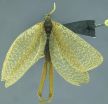(Press-News.org) CHAMPAIGN, Ill. — Throughout 2012, the United States was battered by severe weather events such as hurricanes and droughts that affected both pocketbooks and livelihoods. Research suggests that in the coming years, U.S. five-day forecasts will show greater numbers of extreme weather events, a trend linked to human-driven climate change.
Donald Wuebbles, a professor of atmospheric sciences at the University of Illinois at Urbana-Champaign, will discuss extreme weather in a presentation Feb. 15 at the annual meeting of the American Association for the Advancement of Science in Boston.
In recent decades, multi-day heat waves and severe precipitation have become more frequent. For example, in the U.S. in the 1950s, the number of days that set record high temperatures was equal to the number of days that set record low temperatures. By the 2000s, the United States was twice as likely to see a record high as a record low.
"Human-driven climate change is in fact driving changes in severe weather, and that leads to a lot of potential impacts in both humans and wildlife that end up being costly in many different ways," Wuebbles said.
As the global climate changes, normal weather patterns are altered. This is because the increasingly warmer atmosphere holds larger amounts of water vapor, which energizes storms, Wuebbles said.
The consequences of severe weather are much greater than the disappointment of a missed picnic or the inconvenience of a power outage. Weather-related disasters incur huge expenses, taxing both public funds and private equity. According to the National Oceanic and Atmospheric Administration, 11 extreme weather events costing more than $1 billion each occurred in 2012.
"What we've seen in general is that the number of billion-dollar events has increased over the last three decades," Wuebbles said. "It's not just hurricanes, it's really a number of different types of weather extremes that are increasing, and that's what the worry is."
In his talk, Wuebbles will discuss the current understanding of severe weather in relation to the science of climate change, as well as speak about the issues and uncertainties that will affect the U.S. and world in the coming years.
INFORMATION:
Wuebbles' talk, "Severe Weather in the United States Under a Changing Climate," is to begin at 8:30 a.m. EST in room 302 of the Hynes Convention Center.
Climate change's costly wild weather consequences
2013-02-15
ELSE PRESS RELEASES FROM THIS DATE:
Scientists find promising new approach to preventing progression of breast cancer
2013-02-15
LA JOLLA, CA – February 15, 2013 – Doctors currently struggle to determine whether a breast tumor is likely to shift into an aggressive, life-threatening mode—an issue with profound implications for treatment. Now a group from The Scripps Research Institute (TSRI) has identified a mechanism through which mitochondria, the powerhouses of a cell, control tumor aggressiveness. Based on their findings, the team developed a simple treatment that inhibits cancer progression and prolongs life when tested in mice.
The research team, which describes its results February 15, 2013, ...
Study finds that 'Big Pharma' fails at self-policing ED drug advertising
2013-02-15
CHARLOTTE, N.C. –Feb. 14, 2013– The pharmaceutical industry's efforts to self-regulate its direct-to-consumer (DTC) advertising are "an industry-sponsored ruse," intended to deflect criticism and collectively block new Federal regulation, a study released today in the Journal of Health Politics, Policy and Law found.
The paper, "The Politics and Strategy of Industry Self-Regulation: The Pharmaceutical Industry's Principles for Ethical Direct-to-Consumer Advertising as a Deceptive Blocking Strategy," was written by Denis Arnold, Associate Professor of Management and Surtman ...
Avoiding virus dangers in 'domesticating' wild plants for biofuel use
2013-02-15
In our ongoing quest for alternative energy sources, researchers are looking more to plants that grow in the wild for use in biofuels, plants such as switchgrass.
However, attempts to "domesticate" wild-growing plants have a downside, as it could make the plants more susceptible to any number of plant viruses.
In a presentation at this year's meeting of the American Association for the Advancement of Science, Michigan State University plant biologist Carolyn Malmstrom said that when we start combining the qualities of different types of plants into one, there can be ...
Breast cancer risk prediction model for African American women underestimates risk
2013-02-15
(Boston) – A breast cancer risk prediction model developed for African Americans tends to underestimate risk in certain subgroups, according to a new study from the Slone Epidemiology Center (SEC) at Boston University. The model predicted estrogen receptor (ER)-negative breast cancer, which is a more aggressive form of breast cancer that disproportionately affects African American women, more poorly than ER-positive breast cancer.
The study, published online today in the Journal of the National Cancer Institute, was led by Deborah Boggs, ScD, postdoctoral associate at ...
Neuronal activity induces tau release from healthy neurons
2013-02-15
HEIDELBERG, 15 February 2013 – Researchers from King's College London have discovered that neuronal activity can stimulate tau release from healthy neurons in the absence of cell death. The results published by Diane Hanger and her colleagues in EMBO reports show that treatment of neurons with known biological signaling molecules increases the release of tau into the culture medi-um. The release of tau from cortical neurons is therefore a physiological process that can be regulated by neuronal activity.
Tau proteins stabilize microtubules, the long threads of polymers ...
University of Waterloo researchers propose breakthrough architecture for quantum computers
2013-02-15
WATERLOO, Ont. (Thursday, Feb. 14, 2013) A team of researchers at the University of Waterloo's Institute for Quantum Computing has proposed a new computational model that may become the architecture for a scalable quantum computer.
In a paper to be published in the journal Science this week, the research team of IQC Associate Professor Andrew Childs, post-doctoral fellow David Gosset and PhD student Zak Webb proposes using multi-particle quantum walks for universal computation. In a multi-particle quantum walk, particles live on the vertices of a graph and can move between ...
UTSW researchers identify new enzyme that acts as innate immunity sensor
2013-02-15
DALLAS – Feb. 15, 2013 – Two studies by researchers at UT Southwestern Medical Center could lead to new treatments for lupus and other autoimmune diseases and strengthen current therapies for viral, bacterial, and parasitic infections.
The studies identify a new enzyme that acts as a sensor of innate immunity – the body's first line of defense against invaders – and describe a novel cell signaling pathway. This pathway detects foreign DNA or even host DNA when it appears in a part of the cell where DNA should not be. In addition, the investigations show that the process ...
Researchers uncover new findings on genetic risks of Behçet's disease
2013-02-15
ANN ARBOR, Mich. — Researchers don't know the exact cause of Behçet's disease, a chronic condition that leads to oral and genital sores and serious complications such as blindness, but new research brings better understanding to what makes some people more susceptible to being affected.
In one of the most extensive genetic analyses of Behçet's disease, a University of Michigan-led, international team of researchers has identified novel gene variants in the inflammatory disorder and uncovered data that could apply to studies of other diseases. The results appear in the ...
Spectacular forcepfly species discovered for the first time in South America
2013-02-15
Forcepflies are usually known as earwigflies, because the males have a large genital forceps that resembles the cerci of earwigs. A new species of forcepfly Meropeidae (Mecoptera) from Brazil was described, representing only the 3rd extant species described in this family and the 1st record of the family from the Neotropical region. The distribution and biogeography of the family are discussed and it is even proposed that Meropeidae originated before continental drift and then divided into two branches, northern and southern, with the breakup of the old supercontinent Pangea. ...
This is why it takes so long to get over tendon injuries
2013-02-15
The Achilles heel of the body – getting over damage to tendons can be a long and painful process. By combining the nuclear tests of the 1950s with tissue samples and modern technology, a research collaboration between the Aarhus University and University of Copenhagen now reveals why the healing process is so slow.
Many people are affected by injuries caused by straining the Achilles tendon and other tendons in the body. Danish athletes alone account for up to 200,000 injuries per year. This often leads to frustration over the poor treatment options available, and it can ...





